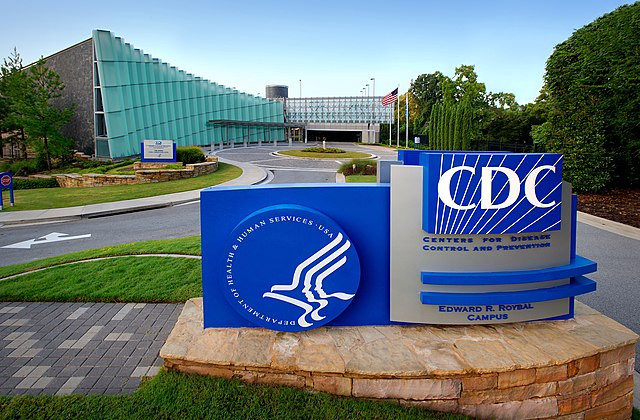The Trump administration has laid off approximately 1,270 employees at the Centers for Disease Control and Prevention, amounting to nearly 10% of the agency's workforce. Among those dismissed were half of the agency's Epidemic Intelligence Service officers, the CDC's elite "disease detectives" who investigate outbreaks and public health threats. The layoffs are part of a broader federal downsizing effort overseen by the Department of Government Efficiency, or DOGE, led by billionaire Elon Musk.
The cuts come as part of a government-wide restructuring that has also impacted the National Institutes of Health and the Food and Drug Administration, though exact figures from those agencies remain unclear. At NIH, up to 1,500 employees are believed to have been laid off, including staff responsible for managing federal research grants and clinical programs.
"These are the deployable assets critical for investigating new threats, from anthrax to Zika," said Dr. Anne Schuchat, a former high-ranking CDC official and an alumna of the Epidemic Intelligence Service. "The country is less safe."
The CDC's EIS program recruits top epidemiologists for two-year fellowships, placing them in health departments across the country to respond to emerging public health threats. The entire incoming class of EIS officers was dismissed in the cuts, a decision that has alarmed public health experts. A current CDC employee, speaking anonymously, called the move "absolutely tragic," adding, "If we lose these people, we lose important capacity and, in a very real sense, we lose our CDC future."
The decision on which employees to cut was reportedly made by Trump administration officials rather than CDC leadership. Many of those dismissed were probationary employees, a category that includes recent hires and staffers who had recently moved into new positions. At NIH, some employees involved in direct patient care were granted exceptions, though confusion remains about the extent of the cuts. "Lots of tears here," said one NIH worker.
The Department of Health and Human Services defended the layoffs as part of President Trump's broader effort to restructure the federal government. "HHS is following the administration's guidance and taking action to support the president's broader efforts to restructure and streamline the federal government," said Andrew Nixon, an HHS spokesperson. "This is to ensure that HHS better serves the American people at the highest and most efficient standard."
The cuts were announced just hours after newly appointed HHS Secretary Robert F. Kennedy Jr. denied plans for mass layoffs at the department. In an interview with Fox News on Thursday, Kennedy had assured the public that those committed to "good science" had nothing to fear. "If you've been involved in good science, you've got nothing to worry about. If you care about public health, you've got nothing to worry about," he said.
The CDC, which operates on an annual budget of $9.7 billion, plays a central role in responding to infectious diseases and advising on public health policies. NIH, the world's largest public funder of biomedical research, has a budget of $48 billion and employs more than 18,000 workers. Public health experts have warned that the cuts could severely hinder the nation's ability to detect and respond to health crises.
"CDC is the health warning system for the United States," said epidemiologist Katelyn Jetelina. "CDC needs change, but doing it so drastically and so aggressively with an axe instead of a scalpel is incredibly dangerous to the biosecurity of the United States."
Employees at both the CDC and NIH reported widespread confusion about the selection process for layoffs and uncertainty about future agency operations. One NIH employee described the situation as chaotic, saying, "In the meeting, they told us they don't know who of us will be laid off. They called the meeting to tell us we likely all will be, but no one will know until they get the email."
Affected employees at NIH will be placed on a 30-day administrative leave before losing access to agency systems and resources. Jeffrey Flier, former dean of Harvard Medical School, criticized the abrupt layoffs, writing in an email, "They continue to follow the recent script of blunt actions without explanation, justification, or vision for the future of NIH and its mission."
The CDC and NIH layoffs are part of a broader government-wide effort to reduce federal employment. Other agencies, including the Department of Energy and the Department of Veterans Affairs, have also begun downsizing staff. The Trump administration has indicated it plans to cut billions of dollars in funding for research and administrative costs at NIH and other scientific agencies, a move that critics argue could significantly impact public health and medical advancements.






